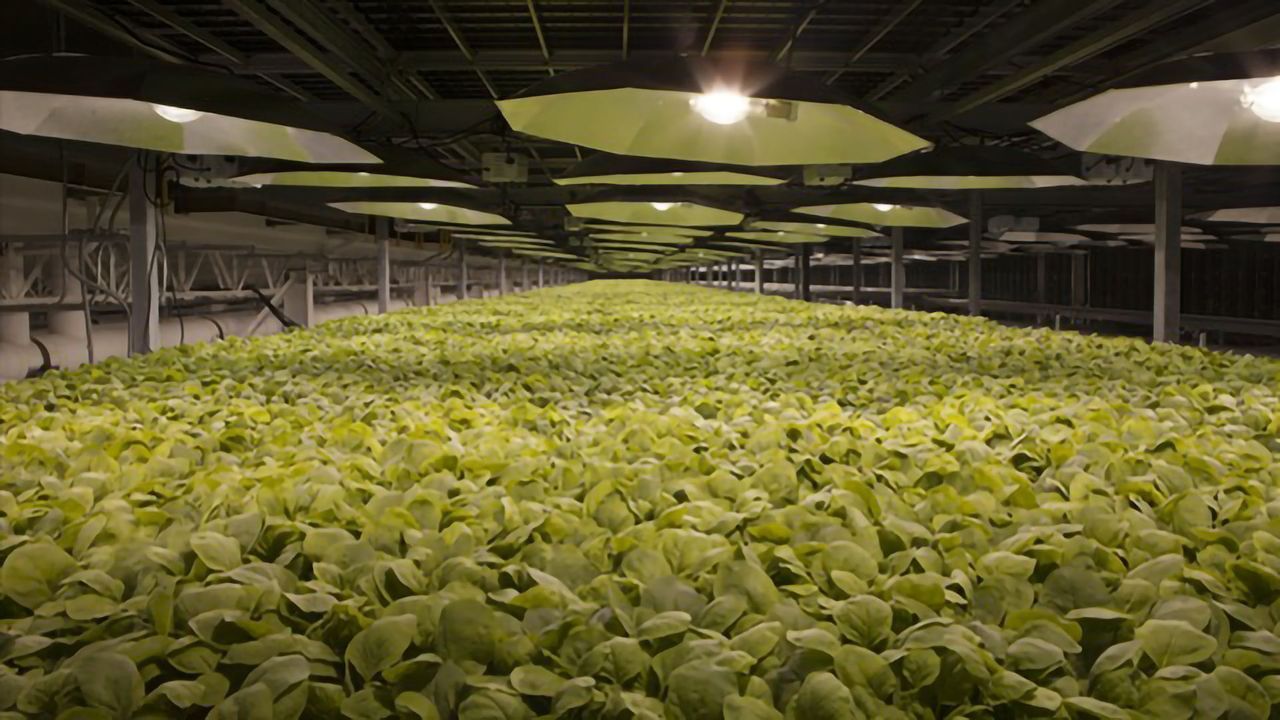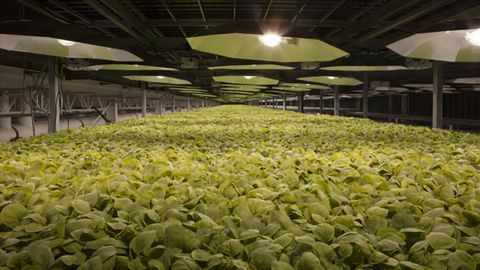
使用快速生长的烟草植物开发Covid-19疫苗

使用快速生长的烟草植物开发Covid-19疫苗
Technology Networks recently spoke to David O’Reilly, PhD, Director of Scientific Research at BAT to learn more about the tobacco plant “biomanufacturing factories” that are being used to develop a COVID-19 vaccine. We also discuss the challenges faced when developing a vaccine and the benefits tobacco plants offer compared to conventional vaccine development methods.
Q: Could you tell us more about the process of transforming tobacco plants into “biomanufacturing factories”?
A: The technologies and processes that our bioprocessing unit develops make it possible to harness the biochemical processes of tobacco plants to produce specific complex proteins more efficiently and effectively than they can be produced using more traditional methods. The tobacco production system offers a much faster and less expensive way to move from product concept to actually having material in hand.
We develop and execute processes to transform tobacco plants into “biomanufacturing factories” that efficiently produce complex proteins they would not otherwise produce. It represents a rapid production cycle that typically takes about 6 weeks – compared with many months using traditional biomanufacturing methods.
We use licensed and proprietary technologies to transiently express genes in fast growing tobacco plants to produce specific target proteins with high fidelity. The plants are grown in an automated, climate-controlled environment that can be adjusted to optimize their production of a protein of interest.
Q: Can you tell us more about the vaccine candidate you are developing for the treatment of COVID-19?
A: Kentucky BioProcessing (KBP) recently cloned a portion of the genetic sequence encoding the selected coronavirus antigen – a substance which induces an immune response in the body and the production of antibodies. This sequence was then inserted into tobacco plants for rapid multiplication production and, once the plants were harvested, the antigen was then purified, conjugated with the tobacco mosaic virus (TMV) scaffold (a unique type of adjuvant) and is now undergoing preclinical testing.
We are now exploring partnerships with government agencies to bring our candidate vaccine to clinical testing as soon as possible. Through collaborations with government and third-party manufacturers, we believe that between 1 and 3 million doses per week could be manufactured from June.
Q: What are some of the challenges encountered when developing a vaccine?
A: Vaccine development is challenging and complex work, as there are many stages to the process from safety and testing to validation and regulatory approval. We believe we have made a significant breakthrough with our tobacco plant technology platform and stand ready to work with governments and all stakeholders to help win the war against COVID-19.
Q: Why do tobacco plants offer the potential for faster and safer vaccine development compared to conventional methods?
A: It is faster because the elements of the vaccine accumulate in tobacco plants much more quickly – 6 weeks in tobacco plants versus several months using conventional methods. Furthermore, the vaccine formulation we are developing at KBP remains stable at room temperature, unlike conventional vaccines which often require refrigeration.
It is potentially safer given that tobacco plants can’t host pathogens which cause human disease and it also has the potential to deliver an effective immune response in a single dose.
Q: Would the tobacco plant used to manufacture the vaccine be deemed a GMO? What regulatory terms surround developing vaccines in this way?
A: Yes, however, the tobacco plants are destroyed during harvesting and the only product kept at the end of the process is the purified antigen and the TMV scaffold.
Q: In the press release BAT said: "Through collaborations with government and third-party manufacturers, BAT believes that between 1 and 3 million doses per week could be made". How will you ensure that the physical space is available to grow the required amount of plants to achieve this proposed figure?
A: We are looking for help from governments to accelerate clinical trials to demonstrate the candidate vaccine is safe and effective. We also need help with downstream manufacturing in terms of conjugation and dispensing. We are also open to working with governments and other partners to build scaled up manufacturing outside the USA. This is non-competitive and we are open to collaboration with other vaccine producers and share technology.
To this end, we have blueprints and plans to replicate the Kentucky facility elsewhere. This can be scaled to increase output beyond that currently available.
David O’Reilly, PhD, was speaking with Laura Elizabeth Lansdowne and Molly Campbell, Science Writers for Technology Networks.">
填写下面的表格,我们将向您发送PDF版本的电子邮件“使用快速生长的烟草植物开发Covid-19疫苗”
英美烟草(BAT)的美国生物技术子公司肯塔基州生物处理(KBP)正在开发Covid-19的潜在疫苗 - 现在正在进行临床前测试。KBP拥有成功治疗发展的记录,这是为少数为埃博拉病毒开发有效治疗的公司之一。
捷克葡萄牙直播最近与之交谈David O’Reilly,博士,蝙蝠科学研究主任了解有关用于开发Covid-19疫苗的烟草植物“生物制造工厂”的更多信息。我们还讨论开发疫苗时面临的挑战以及与常规疫苗开发方法相比,烟草植物提供的益处。
问:您能告诉我们更多有关将烟草植物转化为“生物制造工厂”的过程?
A:我们的生物处理单元开发的技术和过程使利用烟草植物的生化过程可以比使用更传统的方法更有效地生产特定的复杂蛋白质。烟草生产系统提供了一种从产品概念转变为实际拥有材料的速度更快,更便宜的方法。
我们开发并执行过程,将烟草植物转变为“生物制造工厂”,从而有效地产生它们不会产生的复杂蛋白质。它代表了一个快速的生产周期,通常需要大约6周的时间 - 与使用传统的生物制造方法相比。
我们使用许可和专有技术在快速生长的烟草植物中瞬时表达基因,以产生具有高忠诚度的特定靶蛋白。这些植物在自动化的气候控制环境中生长,可以调整该植物以优化其感兴趣蛋白质的产生。
Q: Can you tell us more about the vaccine candidate you are developing for the treatment of COVID-19?
A:肯塔基州生物处理(KBP)最近克隆了编码所选冠状病毒抗原的遗传序列的一部分 - 一种诱导体内免疫反应和抗体产生的物质。然后将该序列插入烟草植物中以快速繁殖,一旦收集了植物,将抗原纯化,将抗原与烟草运动病毒(TMV)支架(独特的辅助类型)结合,现在正在进行抗链状测试。
我们现在正在与政府机构建立合作伙伴关系,以尽快将候选疫苗带入临床测试。通过与政府和第三方制造商的合作,我们认为每周可以从6月制造1至300万剂。
问:开发疫苗时遇到了哪些挑战?
A:Vaccine development is challenging and complex work, as there are many stages to the process from safety and testing to validation and regulatory approval. We believe we have made a significant breakthrough with our tobacco plant technology platform and stand ready to work with governments and all stakeholders to help win the war against COVID-19.
问:与常规方法相比,为什么烟草植物为更快,更安全的疫苗开发提供了潜力?
A:它的速度更快,因为疫苗在烟草植物中积聚的元素要快得多 - 在烟草植物中与使用常规方法相比几个月。此外,与常规疫苗不同,我们在室温下开发的疫苗配方在室温下保持稳定,这通常需要制冷。
鉴于烟草植物无法宿主引起人类疾病的病原体,它也有可能在单剂量中提供有效的免疫反应,这可能更安全。
问:用来制造疫苗的烟草植物会被视为转基因生物吗?哪种监管术语以这种方式围绕开发疫苗?
A:是的,但是,烟草植物在收获过程中被破坏,并且在该过程结束时保存的唯一产品是纯化的抗原和TMV支架。
Q: In the press release BAT said: "Through collaborations with government and third-party manufacturers, BAT believes that between 1 and 3 million doses per week could be made". How will you ensure that the physical space is available to grow the required amount of plants to achieve this proposed figure?
A:我们正在寻求政府的帮助来加速临床试验,以证明候选疫苗是安全有效的。我们还需要在结合和分配方面的下游制造方面的帮助。我们还愿意与政府和其他合作伙伴合作,以建立美国以外的规模制造业。这是非竞争力的,我们愿意与其他疫苗生产商合作并共享技术。
为此,我们有蓝图和计划在其他地方复制肯塔基州的设施。可以将其扩展到超出当前可用的输出。
David O’Reilly博士与技术网络科学作家Laura Elizabeth Lansdowne和Molly Campbell进行了交谈。捷克葡萄牙直播




